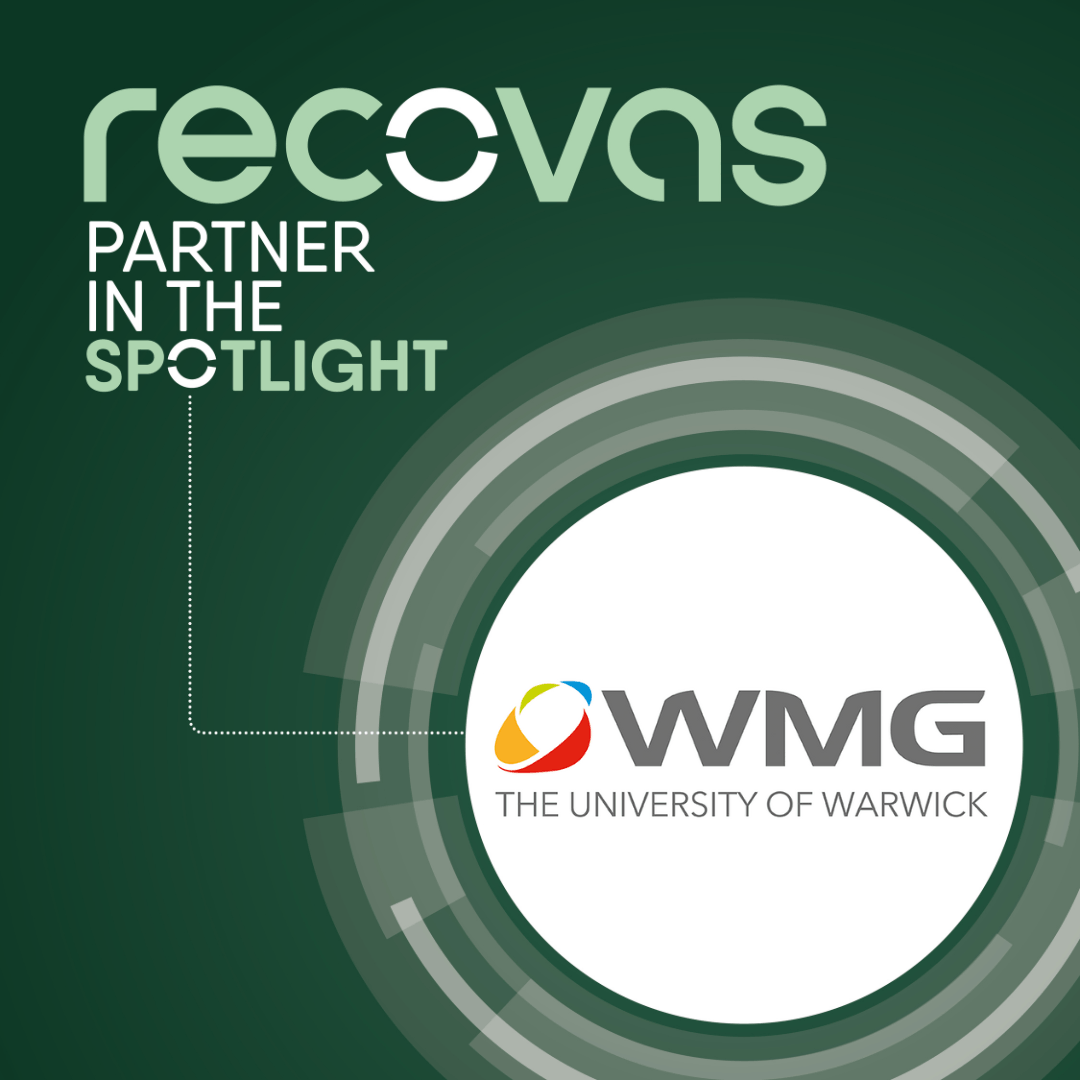CHOOSE
A DIFFERENT TERRITORY

As electric vehicles (EVs) become a more common sight on Britain’s roads, how to sustainably recycle them – and their high-value batteries in particular – will become an increasingly urgent question.
RECOVAS is a partnership which brings together EMR, a world leader in sustainable materials, with some of the biggest car manufacturers (BMW, Jaguar Land Rover and Bentley) and specialist engineering and energy companies (Autocraft Solutions, UKBIC and Connected Energy). RECOVAS is part-funded by the Government’s Advanced Propulsion Centre.
With so much at stake, the project is also relying on the latest academic research from the Warwick Manufacturing Group (WMG) at the University of Warwick.
“Creating a whole new supply chain for end-of-life EV batteries simply won’t happen without a consortium like RECOVAS,”
says Anwar Sattar, Principal Engineer for Battery Recycling at WMG.
WMG’s role in RECOVAS revolves around two work packages.
“The first Work Package is to develop a rapid diagnostic system to check the health of a battery pack. The technology we are developing will mean that, when a battery reaches end of life, EMR can analyse it and work out if it is either suitable to go into a new application or if it should be recycled,”
says Anwar.
“To make that judgement, you need a tool to quickly assess the condition of a battery. At the moment, this takes about 8 hours as it involves charging and discharging the battery. When we have 2 million EVs reaching end of life every year, there simply won’t be enough time to analyse every battery for 8 hours, so the rapid diagnostic system we’re working on will allow this to be done in just two or three minutes.”
WMG’s second Work Package, meanwhile, is related to material recovery.
“Batteries contain lithium, cobalt, nickel, copper as well as graphite aluminium and steel and, as electric vehicles become more common, safeguarding these materials will become even more important,”
says Anwar.
“There’s actually quite a lot of research and development going into this around the world and that has provided us with a platform to work from. Lithium is by far the most valuable material in the battery and as a result of this work we have applied for a patent for a new process that recovers around 95% of the lithium within the cell to a purity of 99.8%.”
Recovering this material for reuse at scale requires further innovation, however.
“When you shred an EV battery you create a material called ‘black mass’ which contains a whole range of important metals,” says Anwar. “Companies such as EMR are great at shredding these batteries and creating a really pure black mass but they don’t have the capability to do what comes next – what do you do with that black mass? How do you extract the lithium, nickel and cobalt? We need to develop our own refining and recycling capabilities right here in the UK.”
Anwar says that it is WMG’s unique set up which makes it the perfect partner for RECOVAS:
“Unlike other academic institutions, our job is not only to look at developing processes on a small scale – it is also to look at how to accelerate that to an industrial scale. WMG is a member of the High-Value Manufacturing Catapult – a network of Innovate UK funded research centres focussed on de-risking innovation for UK manufacturers. “When there is something promising, which we have created as part of a project, we can bid for Catapult funding and use the network expertise to quickly develop it to a larger pilot scale.”
As the partners involved in the RECOVAS project set their sights on transforming the recycling industry, this ambition, focus and expertise will no doubt prove invaluable in turning its ambitions into reality.